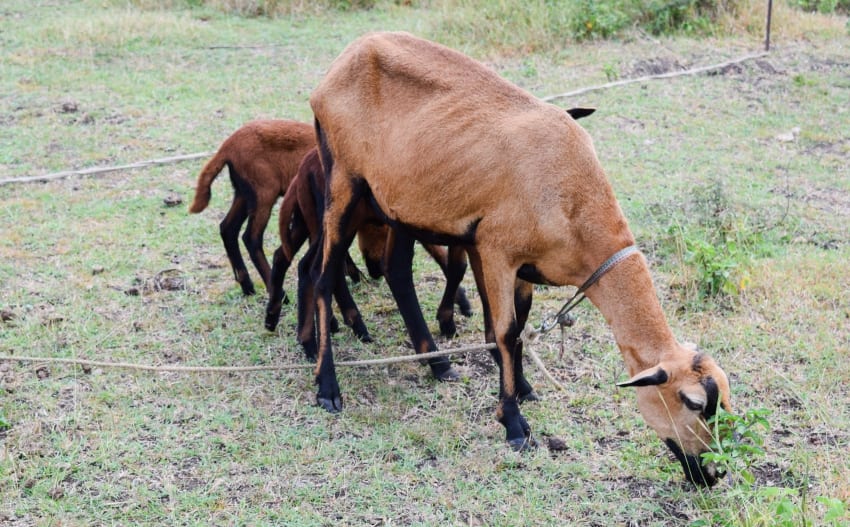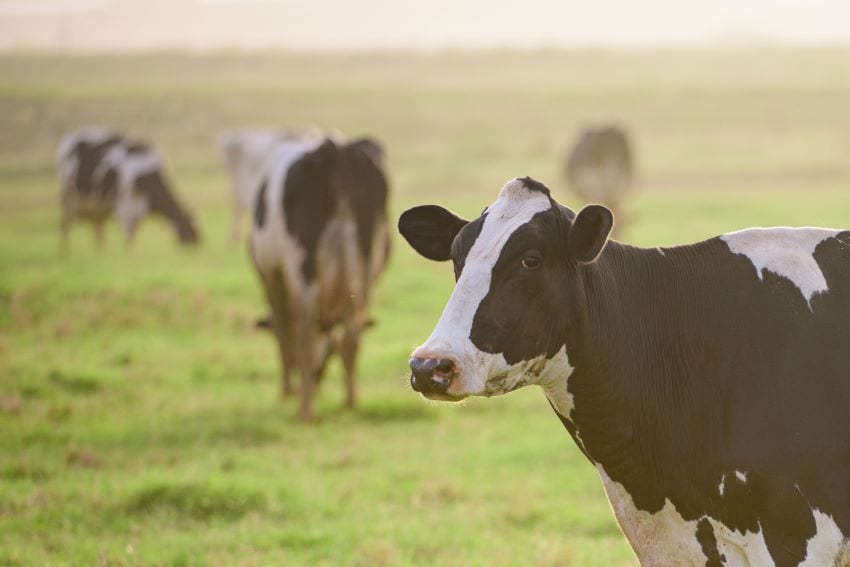Several animals in Barbados are coming down with respiratory illnesses, one of the effects of ash fall from the eruptions of the La Soufriere volcano in St. Vincent and the Grenadines.
Senior Veterinary Officer with the Ministry of Agriculture and Food Security, Dr. Mark Trotman, revealed this earlier today during a press conference chaired by Minister of Home Affairs, Information and Public Affairs, Wilfred Abrahams, at Ilaro Court.
The expert, who noted that there were quite a few challenges as a result of the ash fall, stressed that the Agriculture Ministry had been working with farmers and agricultural societies to determine how best they could address what they were now faced with.
While emphasising the ash was potentially toxic and could cause other problems, he said examples of these problems were being reported by veterinary surgeons across the island.
“Already, what we’re seeing happening is that … several animals are coming down with respiratory problems: coughing, sneezing, ocular and nasal discharges. These are the acute signs of inhalation of the ash, and this is already manifesting itself across the island,” he noted.
Speaking first to what pet owners should do, Dr. Trotman said they needed to keep pets indoors, or in some sort of sheltered structure, especially during ash fall periods.
Noting that the country was having “a bit of a respite right now”, but there was no guarantee the ash fall wouldn’t continue, he added: “The other problems that pets are going to be facing is contaminated feed bowls, contaminated water bowls; picking up toys that have been contaminated by the ash and ingesting the ash.”
He explained that these could then cause secondary or chronic problems that could result in digestive problems, such as vomiting, constipation and diarrhoea, which may not manifest instantly, but could in a week’s time or so.

Offering further advice to owners, he said they should keep the animals away from any ash plumes or ash fall and be very attentive to what they put in their mouth.
While recounting a report from a veterinarian of a dog eating ash, Dr. Trotman warned that when ash gets wet it becomes like a piece of cement in the stomach.
“So, blockages are going to be very, very apparent, very soon. So, … protect the pets; protect their feed supply, protect their water supplies. Keep them out of the ash fall and the ash plumes,” he urged.
The senior veterinary officer also spoke of the impact of ash on grazing animals, and warned that they were the most susceptible to problems caused by ash.
Noting that sheep, who were close grazers, would be most affected because they grazed grass very close to the ground and normally ingested soil when eating, he said: “So, even if the ash is not on the blades of grass, they are on the soil and the sheep will pick up the ash from the soil when they’re grazing.”
Stating that there were sheep and cattle on pastures and he understood some farmers might not necessarily have a choice, the veterinarian stressed that they should be taken off pastures and into sheltered areas, or “at least paid very close attention to”.
“If the animals’ faces are covered in ash they should be washed to protect them; protect their eyes and their ears and their noses from contamination. This is very, very important. There are even further long-term effects we’re going to be getting from the sheep and cattle as well too because the ash is so abrasive,” he emphasised.
Dr. Trotman also stated that, according to reports from veterinarians in countries that have volcanic ash, the teeth of the ruminants start to wear down and break because of the abrasive nature of the ash.

He said the animals then become “inapettent” and unable to eat, and lose their appetites and die of starvation. “So, there are all kinds of acute, medium term and long-term challenges that this ash fall presents and farmers really need to be aware of this. And while you might think you’re getting away with it because the animal doesn’t die instantly, there are further problems going down the road that will probably manifest themselves later on.
His main advice to sheep farmers, in light of this, was to avoid allowing the animals to graze on contaminated pastures and to ensure that feed and water were protected.
Farmers were also given advice to help cattle, who are higher grazers, in the event pastures were not too heavily contaminated.
Adding that he was speaking about those pastures primarily in the south of the island, Dr. Trotman said farmers could use sprinklers, or blowers to try and wash the grasses.
“They will just eat the leaves of the grass, rather than go right down to where the ash is on the ground, but blowers to blow the ash off the grass; sprinklers or washers to wash the ash off the blades of grass may help. Cattle are a little more tolerant to ash than sheep are,” he stated.
The agricultural official stressed the importance of keeping animals under constant veterinary surveillance.
“Make sure you have consummate contact with a veterinary surgeon, and let them keep an eye on your animals so they can pick up any problems that might be developing. We do have a number of veterinarians who cater to livestock, and we have that list of vendor services if you don’t have your own veterinarian, give us a call at veterinary services and we will put you in contact with a veterinarian who will be able to help you out,” he advised.
